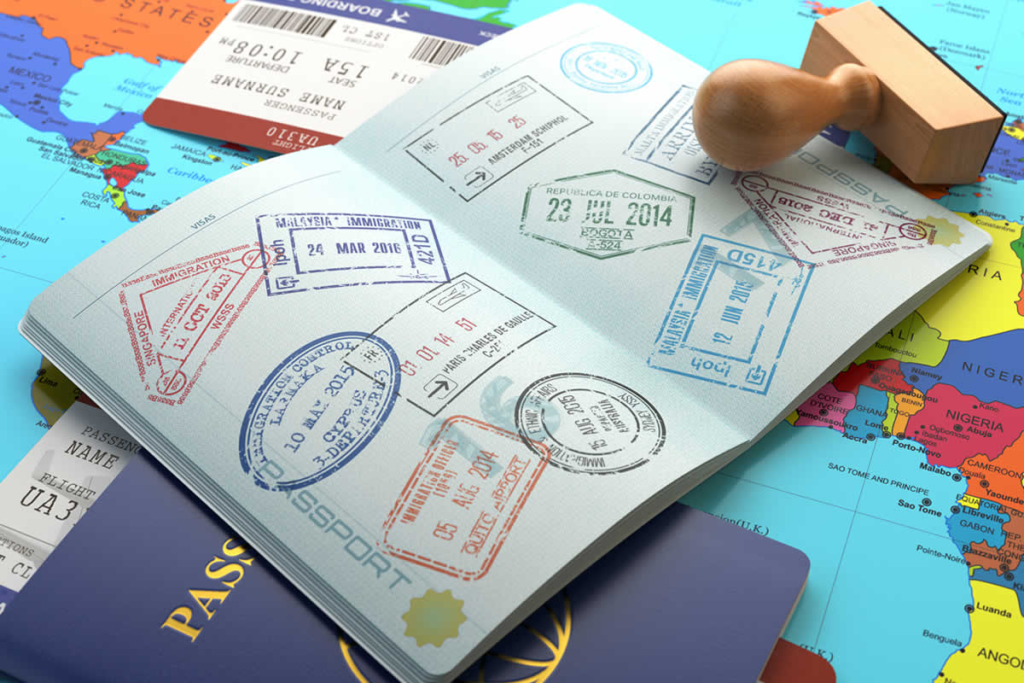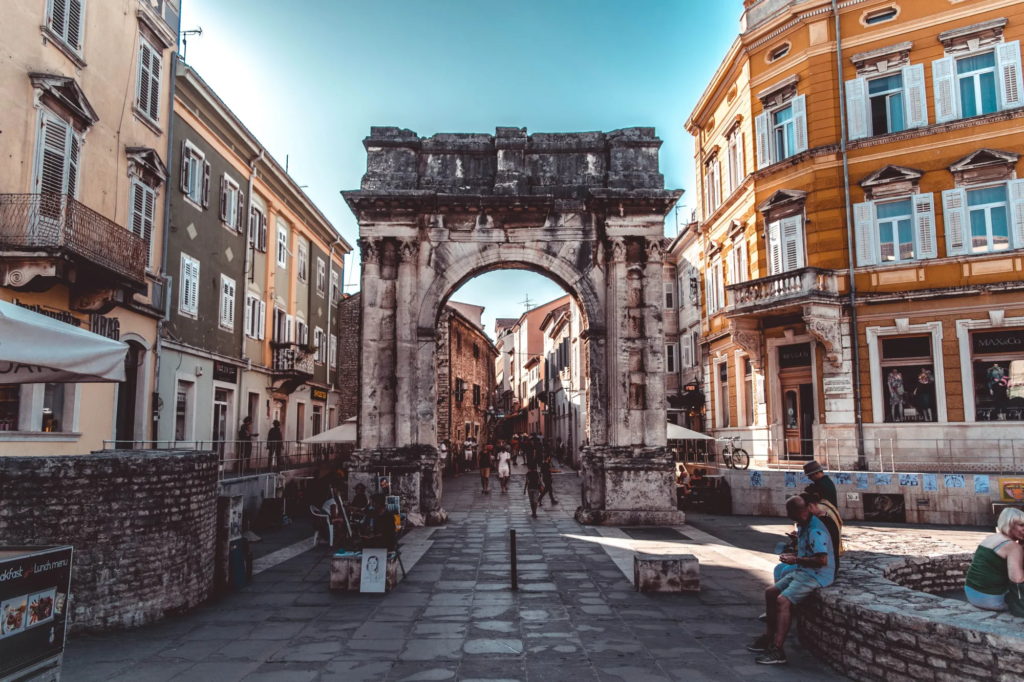Croatia Nomad Visa. In recent years, Croatia has become one of the most attractive destinations for digital nomads. With its stunning coastline, affordable cost of living, and welcoming locals, this Adriatic gem offers a perfect balance of work and leisure. Recognizing the growing trend of remote work, Croatia introduced its digital nomad visa in 2021, allowing non-EU nationals to live and work in the country for up to a year while working remotely for a foreign company. This guide explores everything you need to know about Croatia’s digital nomad visa, from eligibility criteria to the application process, as well as key statistics, tips, and advice to make the most of your remote working adventure in Croatia.
What is Croatia’s Digital Nomad Visa?

Croatia’s digital nomad visa, officially known as the “Temporary Stay Permit for Digital Nomads,” allows non-EU/EEA nationals to live in Croatia for up to 12 months while working remotely for companies based outside of Croatia. This visa was introduced as part of Croatia’s efforts to boost its tourism and attract professionals from around the world.
With this visa, digital nomads can legally reside in Croatia, enjoy its vibrant lifestyle, and explore its picturesque landscapes while continuing their remote work without needing a Croatian work permit.
Eligibility Requirements for Croatia’s Digital Nomad Visa

To apply for Croatia’s digital nomad visa, you must meet the following requirements:
- Non-EU/EEA National: The visa is available for non-EU/EEA citizens who are employed or self-employed, working remotely for companies or clients outside of Croatia.
- Proof of Remote Work: You need to show evidence that you work for a foreign company, own your own business, or provide freelance services for clients outside Croatia. This can be demonstrated through work contracts, business ownership documents, or client agreements.
- Minimum Income Requirement: Applicants must prove they have sufficient financial means to support themselves during their stay. As of 2024, the required minimum monthly income is approximately €2,300 (HRK 17,822) or an annual income of around €27,600 (HRK 213,864). This income threshold is subject to change, so always check the latest figures.
- Health Insurance: Applicants must have valid travel or private health insurance that covers them for the duration of their stay in Croatia. This is an essential requirement to ensure you are protected in case of any medical emergencies.
- No Criminal Record: You will need to provide proof that you have a clean criminal record from your home country or the country where you have been residing in the past year.
- Proof of Accommodation: You must provide evidence of where you will be staying during your time in Croatia. This can be a rental agreement, hotel booking, or proof of ownership if you have purchased a property.
- Valid Passport: Your passport must be valid for the entire duration of your intended stay in Croatia.
Read also : Digital Nomad Visa for Spain: Everything You Need to Know
How to Apply for the Digital Nomad Visa

The application process for Croatia’s digital nomad visa is straightforward, and it can be done online or in person. Here’s a step-by-step guide to help you through the process:
- Gather Your Documents: Before applying, make sure you have all the necessary documents, including:
- A valid passport
- Proof of remote work (contracts, business ownership, etc.)
- Proof of income (bank statements, pay stubs)
- Health insurance coverage
- Proof of accommodation
- Clean criminal record certificate
- Submit Your Application: Applications can be submitted online via Croatia’s official immigration website or in person at a Croatian embassy or consulate. If you are already in Croatia on a tourist visa, you can also apply at your local police station.
- Pay the Application Fee: The application fee varies depending on where you apply. As of 2024, the fee is around HRK 590 (approximately €80) if you apply in Croatia, or around HRK 880 (approximately €120) if applying through a Croatian consulate abroad.
- Wait for Approval: The processing time for the digital nomad visa typically takes around 30 days, but it can vary depending on the volume of applications.
- Receive Your Residence Permit: Once your application is approved, you will receive your temporary residence permit, which allows you to stay in Croatia for up to one year. Keep in mind that the digital nomad visa is a one-time visa and cannot be renewed consecutively. However, after leaving Croatia, you can apply again after 6 months.
Keep reading : Albania Nomad Visa : How to Apply and What do i Need ?
Digital Nomad Visa Statistics and Trends

Since its launch in early 2021, Croatia’s digital nomad visa has seen significant interest from remote workers around the globe. According to the Croatian Ministry of Interior, over 500 digital nomad visas were issued within the first year, with a majority of applicants coming from the United States, Canada, and the United Kingdom.
In addition to its natural beauty, Croatia’s affordability is a big draw for digital nomads. According to the Numbeo Cost of Living Index, the average cost of living in Croatia is about 40% lower than in major U.S. cities like New York or San Francisco. For example, a one-bedroom apartment in the city center of Zagreb (Croatia’s capital) costs around €450 to €700 per month, while outside the city center, prices drop to €300 to €500 per month.
Croatia’s digital nomad community continues to grow, and several cities have become popular hotspots for remote workers. Split, Dubrovnik, Zagreb, and Rijeka are among the most sought-after destinations due to their excellent infrastructure, coworking spaces, and quality of life.
Read also: Portugal Nomad Visa: Who is Eligible and How to Apply
The Benefits of Croatia’s Digital Nomad Visa

Croatia offers a unique set of benefits for digital nomads, making it an appealing destination for remote workers. Here are some of the key advantages:
- Beautiful Landscapes: Croatia is home to stunning landscapes, including over 1,200 islands, crystal-clear waters, and historic towns. Whether you’re into beach lounging, hiking, or exploring ancient architecture, Croatia has something for every adventurer.
- Affordable Cost of Living: Compared to other European countries, Croatia is relatively affordable. From housing to food and entertainment, your money goes further in Croatia, making it a great place for digital nomads on a budget.
- Safety: Croatia is considered one of the safest countries in Europe, with a low crime rate and a welcoming atmosphere for foreigners.
- Vibrant Digital Nomad Communities: Croatia has a growing digital nomad community, and cities like Split and Zagreb have established coworking spaces, networking events, and digital nomad-friendly cafes. You’ll have plenty of opportunities to meet other remote workers and build your network.
- Travel Opportunities: Croatia’s central location in Europe makes it an ideal base for traveling to nearby countries. With regular flights and ferry connections, you can easily explore other parts of Europe while working remotely in Croatia.
Tips and Advice for Digital Nomads in Croatia
If you’re considering applying for Croatia’s digital nomad visa, here are some helpful tips and advice to ensure you have a smooth and enjoyable experience:
- Choose the Right City: Croatia has many beautiful cities, but each offers a different vibe. If you prefer a laid-back coastal lifestyle, cities like Split and Dubrovnik are ideal. For a more urban experience with plenty of amenities, Zagreb is a great option. Do some research and choose the city that best fits your lifestyle and work needs.
- Plan Your Finances: While Croatia is affordable compared to other Western European countries, it’s important to budget carefully. Keep in mind that cities like Dubrovnik and Split can be more expensive, especially during the peak tourist season (summer months). Having savings in place or a stable remote income is essential to enjoy your stay without financial stress.
- Explore Beyond the Major Cities: While Croatia’s major cities are popular among digital nomads, don’t forget to explore the country’s smaller towns and islands. Places like Hvar, Korčula, and Plitvice Lakes offer stunning natural beauty and a more relaxed atmosphere.
- Stay Connected: Croatia has excellent internet infrastructure, with high-speed broadband available in most urban areas. However, if you plan to work from more remote locations or islands, make sure to check the availability and reliability of internet services in advance.
- Learn Basic Croatian Phrases: Although most Croatians speak English, learning a few basic Croatian phrases can go a long way in making connections with locals and enriching your experience.
- Travel During Off-Peak Seasons: Croatia’s popularity as a tourist destination means that prices and crowds can peak during the summer months (June to August). To avoid the hustle and high costs, consider traveling during the shoulder seasons (April-May or September-October) when the weather is still pleasant, but the crowds are thinner.
- Stay Compliant with Visa Regulations: Remember that the digital nomad visa is a temporary residence permit, and you must comply with Croatian immigration laws. Stay informed about your visa’s expiration date and avoid overstaying.
- Join Digital Nomad Communities: Croatia has a growing network of digital nomads, and there are various online groups, forums, and events where you can connect with other remote workers. Joining these communities can provide valuable advice, support, and social opportunities during your stay.
Read also Discover Greece: 10 Must-Visit Cities for an Unforgettable Trip








